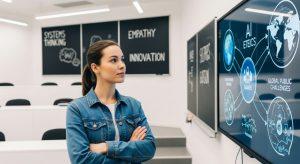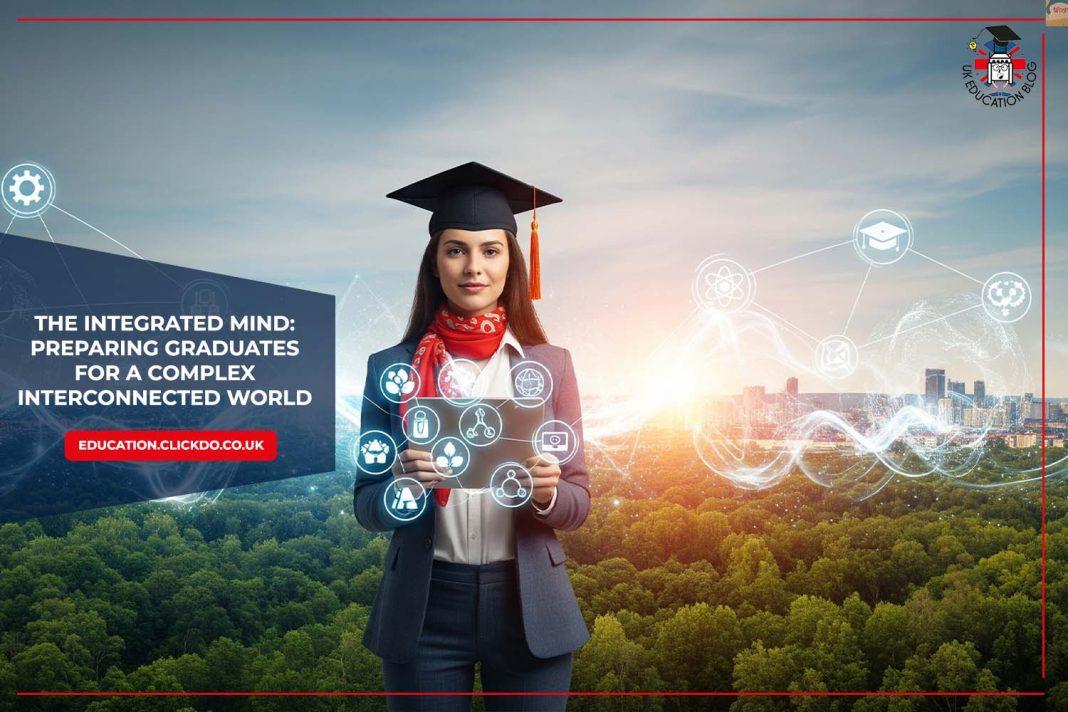The global landscape today is shaped by challenges that are increasingly complex, interwoven, and resistant to simplistic or one-dimensional solutions.
Critical concerns such as climate change, global health threats, systemic economic inequalities, and the moral dilemmas presented by emerging technologies like artificial intelligence demand a comprehensive approach to understanding and action.
Traditional academic structures, while effective in cultivating specialised expertise, are no longer adequate for addressing the multidimensional nature of these issues.
As a result, there is a growing recognition of the need for graduate education to embrace interdisciplinary methodologies that promote broad-based thinking, critical inquiry, and creative problem-solving.
The Constraints of Academic Specialisation
Although specialisation has long served as a foundation of scholarly achievement, its limitations are becoming more pronounced in the context of rapid societal and technological transformation. A professionally trained exclusively in computer science may be capable of designing advanced systems but might lack the ethical or societal lens necessary to foresee unintended consequences.
Conversely, a scholar grounded in the humanities may offer profound insight into historical and cultural dynamics but could struggle to navigate the accelerating pace of technological innovation. The ability to integrate technical and scientific understanding with ethical, social, and cultural awareness is becoming essential. This intersectional capacity enables individuals to ask not only how solutions are developed, but also whether they are justifiable and aligned with societal needs.
1. Interdisciplinary Learning as a Vehicle for Versatility

Interdisciplinary education is uniquely positioned to develop this kind of intellectual agility. By bridging multiple academic domains, it enables learners to explore problems from various vantage points, fostering analytical depth, adaptability, and collaborative expertise. This mode of education encourages the application of diverse research tools and theoretical frameworks to real-world problems, producing graduates who are well-equipped to navigate complex environments.
Furthermore, interdisciplinary education fosters a heightened awareness of ethical, social, and environmental responsibilities. Programs rooted in this approach prompt learners to consider the broader implications of their work, encouraging reflection, responsibility, and a sense of civic engagement. These qualities align closely with the objectives of graduate-level education, which increasingly values not just technical proficiency but also intellectual maturity and global awareness.
2. Practical Experience and Application-Focused Learning
One of the defining strengths of interdisciplinary programs is their focus on experiential learning and applied knowledge. Many such programs incorporate real-world challenges into the academic curriculum, encouraging students to work collaboratively on projects that reflect the complexity and uncertainty of professional environments. These initiatives enhance both conceptual understanding and practical skills while also nurturing interpersonal competencies such as leadership, cross-cultural communication, and emotional intelligence, skills that are essential in today’s interconnected global economy.
A prominent example of this interdisciplinary approach within the context of a graduate degree UK is the London Interdisciplinary School (LIS). At LIS, students confront urgent global issues, ranging from climate change and social inequality to the ethical implications of emerging technologies, through a curriculum centred on problem-based learning. By integrating knowledge from the sciences, humanities, and social sciences, the program equips students with the tools to address challenges from multiple perspectives. This holistic educational model prepares graduates to transcend disciplinary boundaries and contribute meaningfully across diverse academic, research, and professional contexts.
3. Rethinking Educational Priorities for a Changing World

As global systems continue to evolve, academic institutions are tasked with preparing individuals not only to succeed within established professional frameworks but also to innovate and lead amid ongoing transformation. This preparation cannot be confined to specialised expertise alone. Success increasingly relies on the ability to connect ideas, bridge disciplines, and engage thoughtfully with uncertainty and change.
Interdisciplinary education provides a comprehensive framework for cultivating these capabilities. It equips students with the cognitive tools and practical experience necessary to engage with the multifaceted realities of the modern world. By fostering a culture of synthesis, inquiry, and collaboration, this educational model supports the development of professionals who are both intellectually versatile and socially responsible.
4. Interdisciplinary Education as a Cornerstone of Graduate Learning
The nature of today’s challenges calls for more than technical skills; it demands vision, systemic thinking, and ethical sensitivity. Interdisciplinary education not only responds to these demands but also anticipates the evolving needs of graduate education. It shifts the focus from academic isolation to integrated knowledge, from static learning to dynamic engagement. This approach aligns with the priorities of contemporary higher education institutions that aim to produce graduates who are not only knowledgeable, but capable of applying that knowledge in ways that make a meaningful difference.
As the scale and complexity of global issues continue to intensify, the ability to integrate and apply knowledge across disciplines will be a defining trait of successful graduate education. Far from being a mere academic trend, interdisciplinary study represents a strategic and necessary shift toward a more responsive, inclusive, and impactful model of learning.
Author Profile

- Shirley Owen is a blogger and writer who enjoys writing blogs on education, technology and general news. An avid reader, she follows all the latest news & developments to report on them through her articles.
Latest entries
 learningDecember 22, 2025When Co-parenting Affects School Performance – Challenges & Solutions
learningDecember 22, 2025When Co-parenting Affects School Performance – Challenges & Solutions educationDecember 11, 2025Making Education Accessible for Mobile Families that Travel
educationDecember 11, 2025Making Education Accessible for Mobile Families that Travel learningOctober 28, 20257 Daily Classroom Strategies Helping Children With Learning Differences Thrive
learningOctober 28, 20257 Daily Classroom Strategies Helping Children With Learning Differences Thrive  educationSeptember 18, 2025A Guide to the European Accessibility Act for Schools and Universities
educationSeptember 18, 2025A Guide to the European Accessibility Act for Schools and Universities







